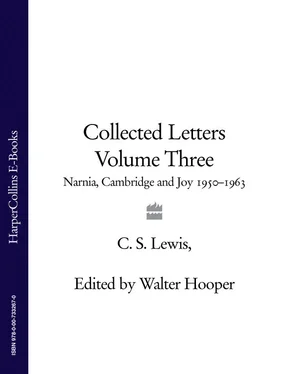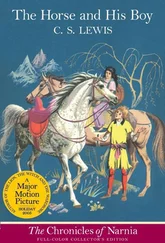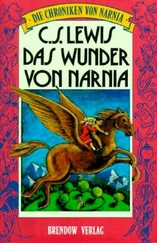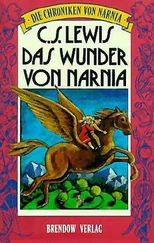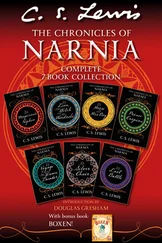Thanks for the C.W. 154 sonnet which, I agree, is good & characteristic in thought. Not bad in expression either, except for thrall . (Tho’ whether, in the long run the banishment of Poetic Diction & Archaism, wh. reduces us from the freedom of Greek, Anglo-Saxon & Skaldic verse, to the straight-waistcoast of classical French, may not shend us all, I’m not sure.) My duty remembered.
Yours sincerely
C. S. Lewis
TO JILL FREUD (T): TS
Magdalen College,
Oxford.
29th September 1950.
Dearest June,
Hurrah! A book I’ve always wanted. I shall devour it. Thank Clay enormously.
(Here concludes the manuscript of C.S.L., and as he has left to week-end with Barfield at Abingdon, I can’t challenge his spelling of Clay—surely Clé: to whom all greetings. How delightful of you to send this excellent book; I remember from our lunch at the Royal Oxford that Clé is an expert in this sort of thing, and no gift could have pleased us better.
As for coming to see you, it is, in the jargon of the day, a priority programme: but I fear nothing can be done about it until this term is over; you remember what term is like for poor J.
I hope Mrs. Freud is very happy in her new life; I don’t send the same wishes to Cle, for if he is’nt happy, what would make him so?).
No news here. Minto continues much the same, some days recognizing us, some days not. It sounds horribly unChristian and callous, but I can’t help wishing she would die. Can you imagine anything more horrible than lingering on in this state? However, she seems fairly contented.
All love to you both.
Yours,
Warnie
P.S. Many thanks for the wedding cake. Pushkin is up to a bit of no good in the neighbour’s gardens, but will be made to sleep on his portion as soon as he comes back.
TO MARTYN SKINNER (BOD): 155
Magdalen College
Oxford
11/10/50
Dear Skinner
Great Heavens, what must you think of me by now! I see it is almost exactly a year since you so kindly sent me a copy of Two Colloquies: 156 and all that time not even a word of acknowledgement. I reject a momentary temptation to tell you that the year has been spent in a continuous, intensive study of the text. The truth is, I didn’t want to write until I had given them a sympathetic reading and somehow I never was in the mood for them till tonight. (Reading collection papers, 157 like marking School Cert., 158 I have always found a great whetter of appetite for poetry. Fact! I don’t know why). The right mood for a new poem doesn’t come so often now as it used to. There is so little leisure, and when one comes to that leisure untried—well, you know, Ink is a deadly drug. One wants to write. I cannot shake off the addiction.
They’re good. The puns may be a bit too frequent for my taste, but most of them excellent in quality. (I mean, I couldn’t make them myself!)–especially ‘Lies is for me a realistic word.’ 159 And other Wit too, and wit that involves wisdom, like ‘Doesn’t a cap still fit turned inside out.’ 160 ‘Shelley-shalley’ 161 is a verb in a thousand. But ‘me rather all that bowery etc,’ 162 I mean the bits (in the good, obvious, old fashioned sense of the word) more ‘poetical’. Everyone has had a try at dewy cobwebs: few better than yours on p. 7. And I liked ‘A branch’s beauty in a waggon’s curve’, 163 and all p. 14 about the honey coloured ham and the white mines of pork inside the crackling made my mouth water. 164 ‘Simple, sensuous, and passionate’ 165 egad! So too the whole bit beginning ‘This scene describes the hermit.’ 166 But what’s much the best of all, what gave me the authentic thrill (an ‘uncovenanted’ thrill for your metre and manner don’t, so to speak, contract to provide such, they are not on the menu ) is the passage beginning at the bottom of p. 35 on the worlds in the skull. Which retrospectively enriches the close of the first ‘drink to the Utopia within’. 167 Congratulations.
I expect this comes like last night’s joint appearing at breakfast, for of course you’re now writing something else and don’t particularly want to learn about the Colloquies . Can you forgive me? I assure you there are days when I could say with honest King George ‘I hate Bainting and Boetry’, 168 and I wouldn’t like to have gulped you down in one of those. Last time you wrote to me didn’t you say you were contemplating a narrative poem? Has anything come of it?
I must go to bed. Once more thanks v. much for this very distinguished little book, and add to the kindness by forgetting my incivility.
Yours
C. S. Lewis
TO VERA MATHEWS (W): TS
REF.50/81
Magdalen College,
Oxford.
16th October 1950.
Dear Miss Mathews,
Your parcels arrive at such frequent intervals that I am quite perplexed how to acknowledge them! Here is yet another, full of good things, which has just reached me, and for which I can, as usual, do no more than offer a simple thank you: and you know it is no empty form of words.
The international sky seems a trifle better than when I wrote last, and you must all be very proud of McArthur and your army: for, though called a UNO army, I fear the rest of us played a very small part in the victory. Let us hope that the whole sad affair will cause Stalin to change his policy, even at the eleventh hour: tho’ the boiling up of the trouble in French Indo-China does not look as if he was very repentant.
I am beginning the second week of a new term, and the harness still galls a little: but ‘the old horse for the hard road’ as we say. I expect I shall soon be trotting contentedly enough.
With many thanks and good wishes to yourself and your father,
Yours sincerely,
C. S. Lewis
The Lion, the Witch and the Wardrobe: A Story for Children was published by Geoffrey Bles of London on 16 October 1950 .
TO HARRY BLAMIRES (BOD): 169 TS
REF.50/362.
Magdalen College
Oxford.
18th October 1950.
Dear Blamires,
I wanted nothing altered except the things I noted: certainly I did not want what I should call a ‘re-writing’. 170 But that is such a vague word, and we can only guess what it covers in Bles’s mind. I should advise you (if you are going to pursue the Bles avenue instead of trying another publisher) to make exactly the corrections you think proper–no more and no less—and then re-submit it. He will probably (entr nous) 171 not remember the original text well enough to know how drastic the changes are! I can’t advise about other publishers: you’d know better than I. I hope it will find a home: I thought it a useful book.
In haste, with all good wishes,
yours,
C. S. Lewis
TO CHAD WALSH (W):
Magdalen College
Oxford
20/10/50
Dear Walsh
Of course they feel passion about politics but no passion enough for poetry: especially passions that have no commerce with the senses. Sexual passion, you see, has a concrete object before it, and is linked with fundamental impulses.
The real parallel to much modern political poetry is not religious poetry concerned with God or the Passion or Heaven but merely pious poetry concerned with (ugh!) ‘religion’. The religion of politics is a religion without sacraments: for the human sacrifices wh. it practices are mere murder, not even ritual murder. Wordsworth compensated for the (poetically) ghost-like nature of politics by using a strict form, the sonnet. But that matter , with vers libre as the form, is to me quite unpardonable: a noisy vacuity.
My brother is now quite well, thanks. I’ll note the B.P.J. 172 If you get some verse from me you’ve brought it on yourself: wéan ahsode 173 All the best.
Читать дальше
